Best Tools for Software Testing and QA in 2025
Software testing isn’t just about finding bugs—it’s about making sure your product works smoothly and delivers the best possible experience to users. Whether you’re building a web app, a mobile app, or an API-driven service, quality assurance (QA) is a crucial step in the development process. Without proper testing, even the smallest issues can turn into major headaches down the road.
Luckily, there are plenty of great tools out there to help make testing easier, faster, and more effective. From automation and API testing to performance monitoring and bug tracking, the right tools can save time, catch issues early, and improve overall software quality.
We’ve put together a list of the best software testing tools for 2025. Whether you’re a seasoned QA engineer or just getting started, these tools will help you automate tests and catch issues early.
Requestly
Requestly is a API client and testing tool that allows developers and testers to modify API responses, mock endpoints, and intercept network requests in real time.
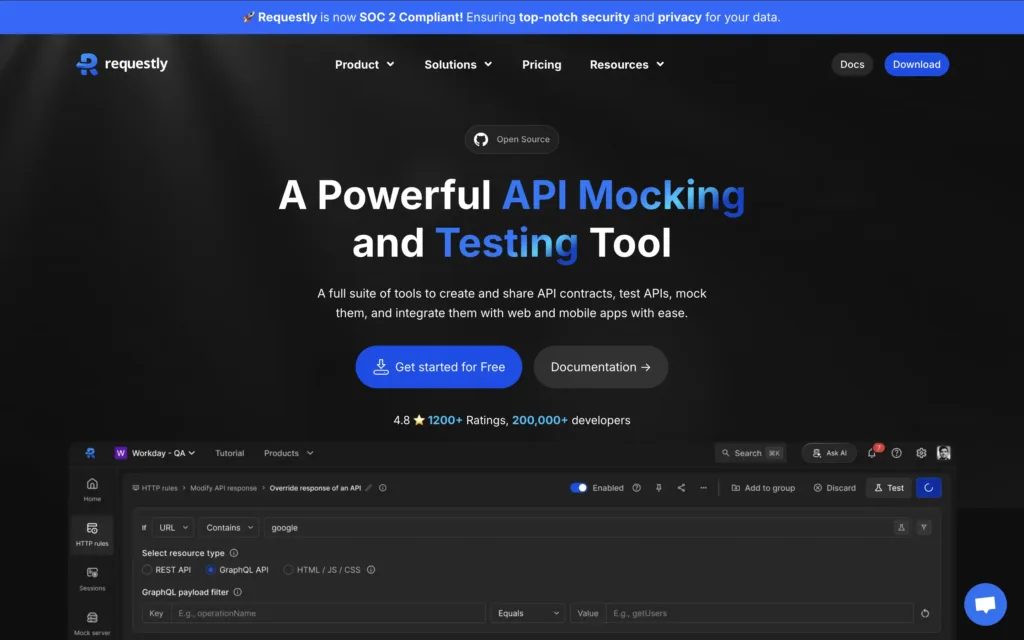
Key Features:
- API Client for testing REST and GraphQL APIs
- Modify API responses directly in the browser
- Mock entire services for isolation testing
- Automate API request interception and modification
- Supports cloud mocks and bulk rule creation
Use Case:
Testing an API’s failure scenarios by modifying API responses to simulate error conditions.
Selenium
Selenium is an open-source automation framework primarily used for testing web applications. It supports multiple programming languages and integrates well with other testing tools.
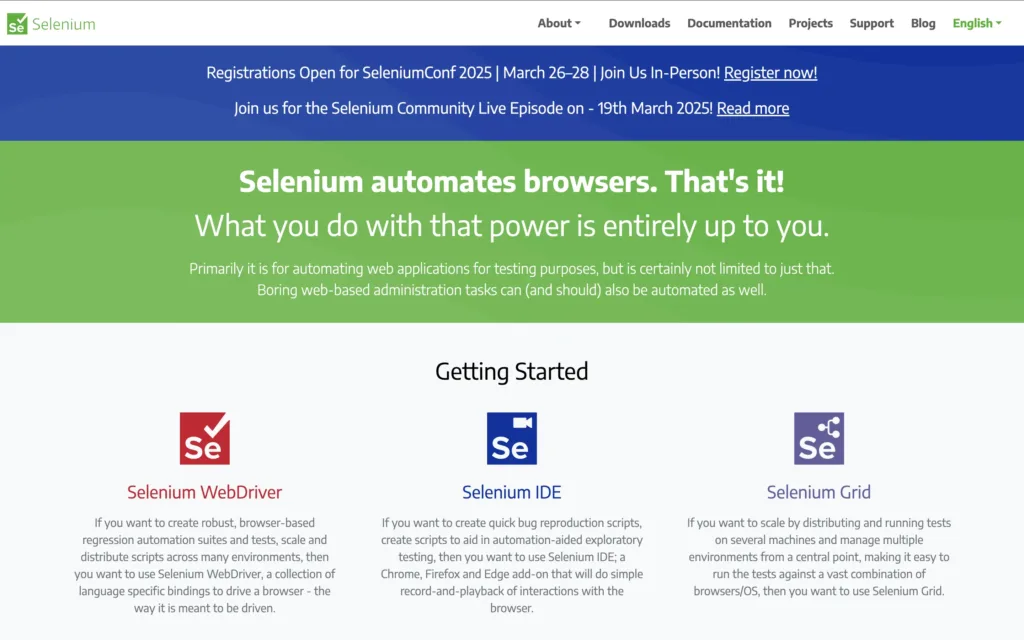
Key Features:
- Supports multiple browsers (Chrome, Firefox, Edge, Safari)
- Works with Java, Python, C#, JavaScript, and more
- Enables parallel test execution
- Supports headless browser testing
Use Case:
Automate regression testing for a web application to ensure new updates do not break existing functionality.
Playright
Playwright is a modern end-to-end testing framework that allows cross-browser testing with high reliability and powerful debugging capabilities.
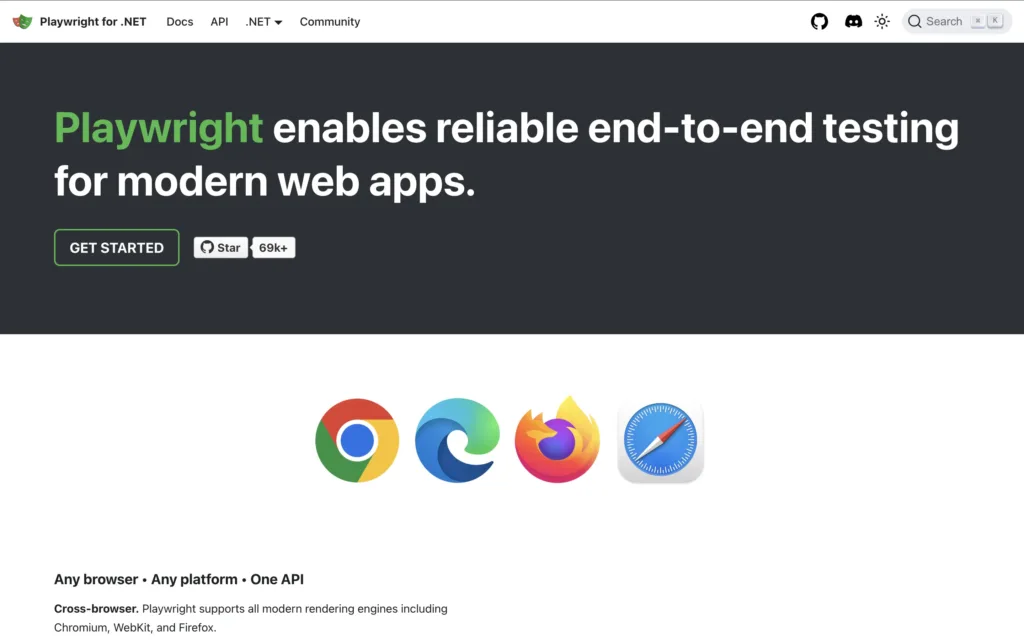
Key Features:
- Supports Chromium, Firefox, and WebKit
- Runs tests in headless mode for faster execution
- Handles auto-waiting and network interception
- Built-in support for mobile emulation
Use Case:
Testing a web application’s UI behavior across different browsers to ensure consistency.
Cypress
Cypress is a JavaScript-based end-to-end testing framework designed for modern web applications. It runs directly in the browser, providing fast, reliable, and easy-to-debug tests for UI and API interactions.
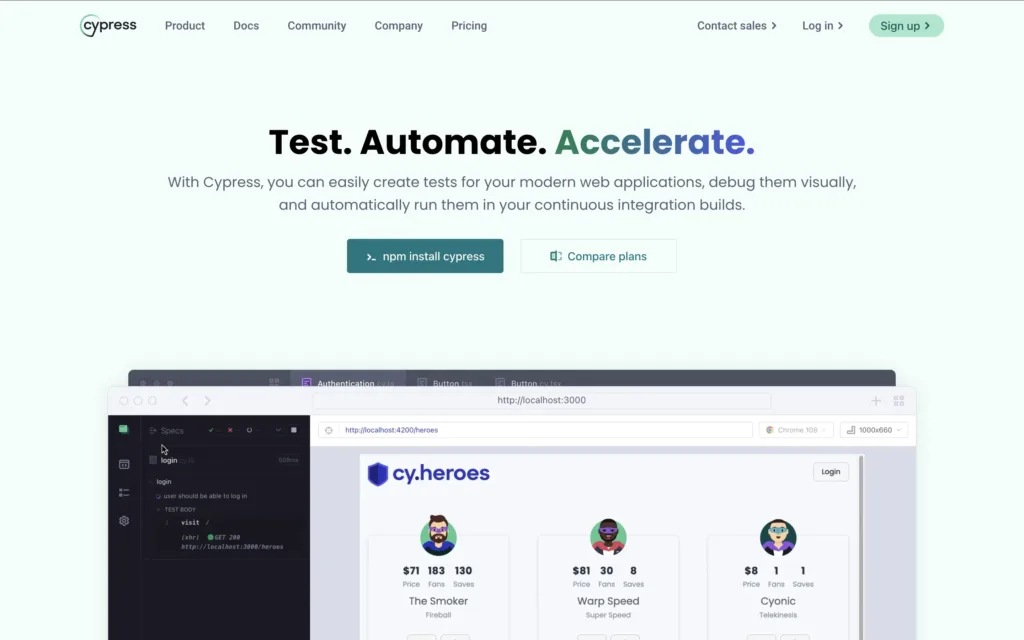
Key Features:
- Fast and reliable execution with built-in retries
- Works directly in the browser with real-time reloading
- Supports API testing alongside UI testing
- Provides detailed test reports and debugging tools
Use Case:
Testing an e-commerce website’s checkout flow to ensure seamless user experience.
JMeter
Apache JMeter is an open-source performance and load testing tool used to test the scalability and reliability of web applications, APIs, databases, and other services. It simulates heavy user traffic to analyze system performance under different conditions.
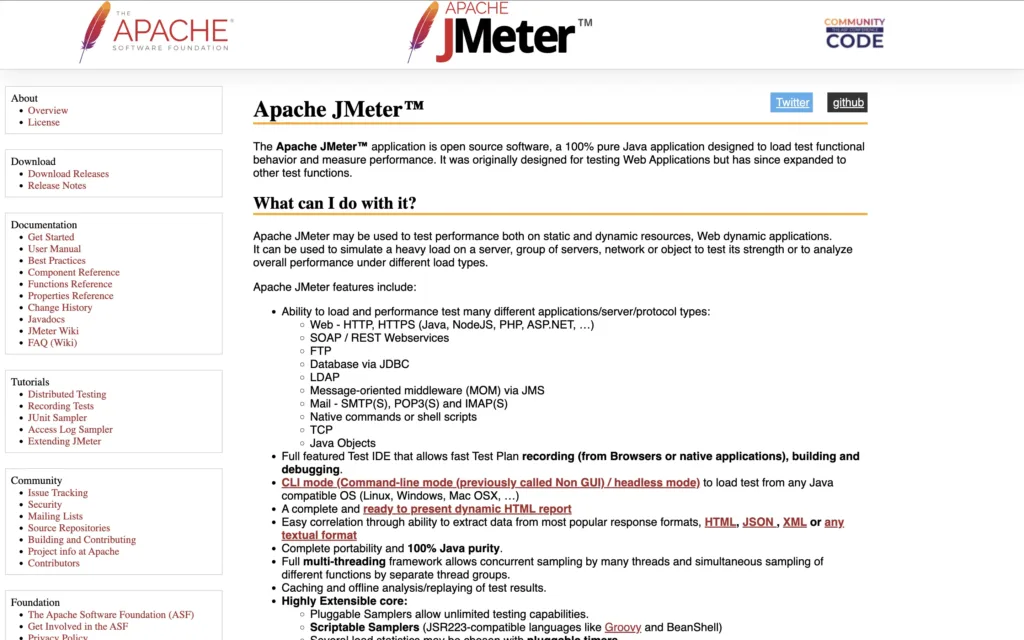
Key Features:
- Supports HTTP, FTP, JDBC, and SOAP protocols
- Enables distributed load testing
- Generates detailed performance reports
- Integrates with CI/CD pipelines
Use Case:
Load testing a banking application to assess its performance under heavy traffic.
k6
k6 is an open-source performance testing tool designed for API and load testing. It helps developers and QA teams simulate real-world traffic, analyze system performance, and ensure applications can handle high loads.
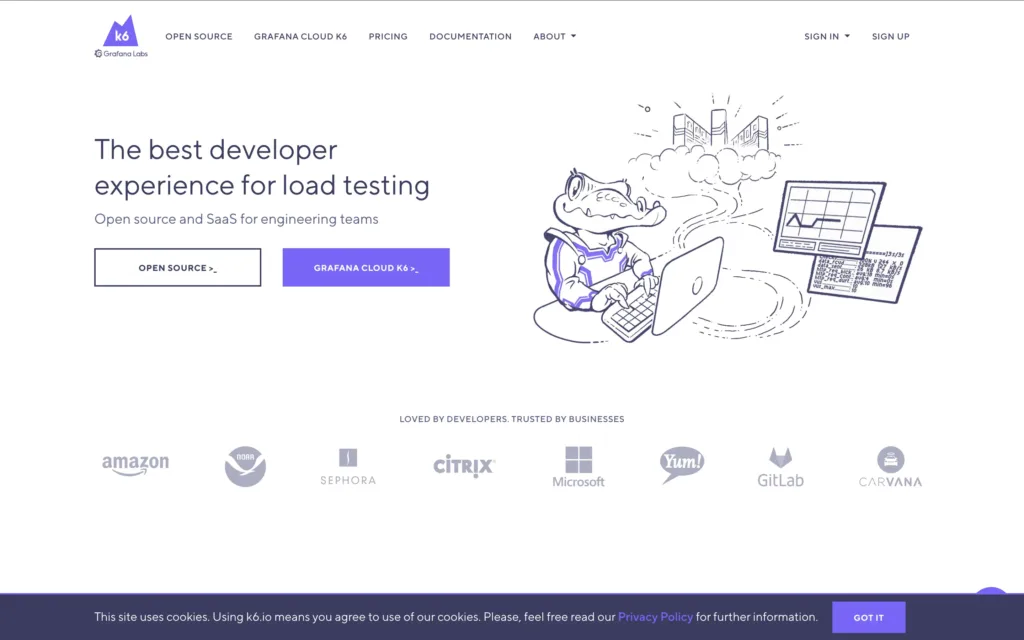
Key Features:
- Supports JavaScript-based test scripting
- Integrates with CI/CD pipelines
- Provides real-time performance metrics
- Works with cloud and on-premise environments
Use Case:
Simulating 10,000 concurrent users on an API to analyze response times and failures.
BrowserStack
BrowserStack provides virtual devices on the cloud for cross-browser and mobile testing, enabling testers to run automated and manual tests on real device environments without the need for physical hardware.
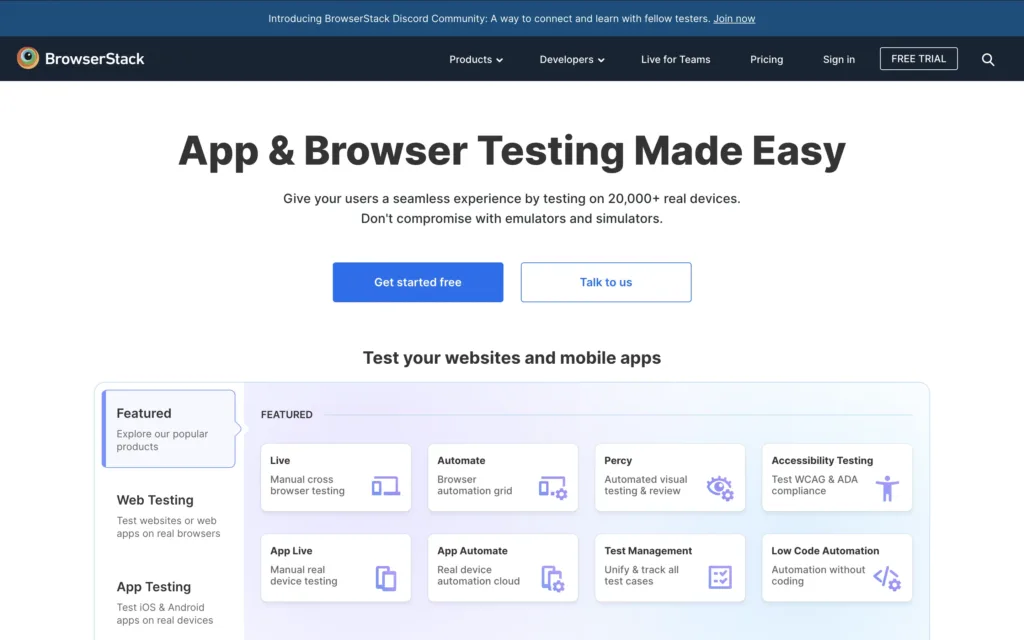
Key Features:
- Access to real devices and browsers for testing
- Supports Selenium, Cypress, and Playwright integration
- Parallel testing for faster execution
- Provides automated visual testing
Use Case:
Testing a web application’s UI across different browsers and devices.
Sauce Labs
Sauce Labs is a cloud-based testing platform that provides real and virtual devices for automated and live testing of web and mobile applications. It helps QA teams ensure cross-browser compatibility and mobile responsiveness without managing on-premise test infrastructure.
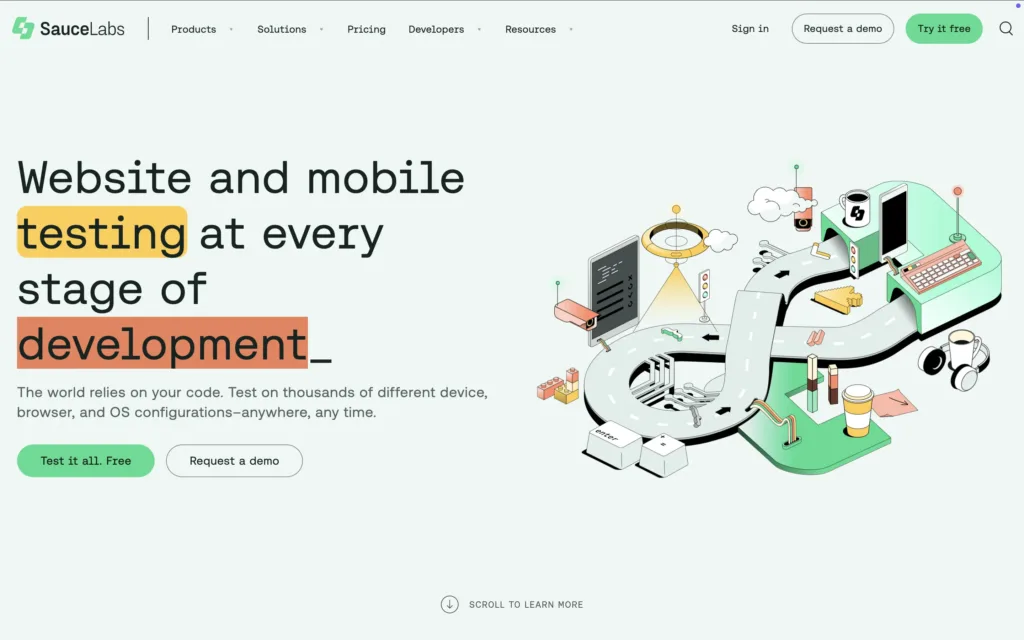
Key Features:
- Supports live and automated testing
- Provides access to real devices for mobile testing
- Integrates with popular CI/CD tools
- Advanced debugging and performance analysis
Use Case:
Running automated mobile tests for an iOS and Android app across multiple devices.
Conclusion
Choosing the right tools depends on your testing needs. Whether you need automation, API testing, performance testing, or security testing, these tools help ensure software quality and efficiency.
Contents
Subscribe for latest updates
Share this article
Related posts



















